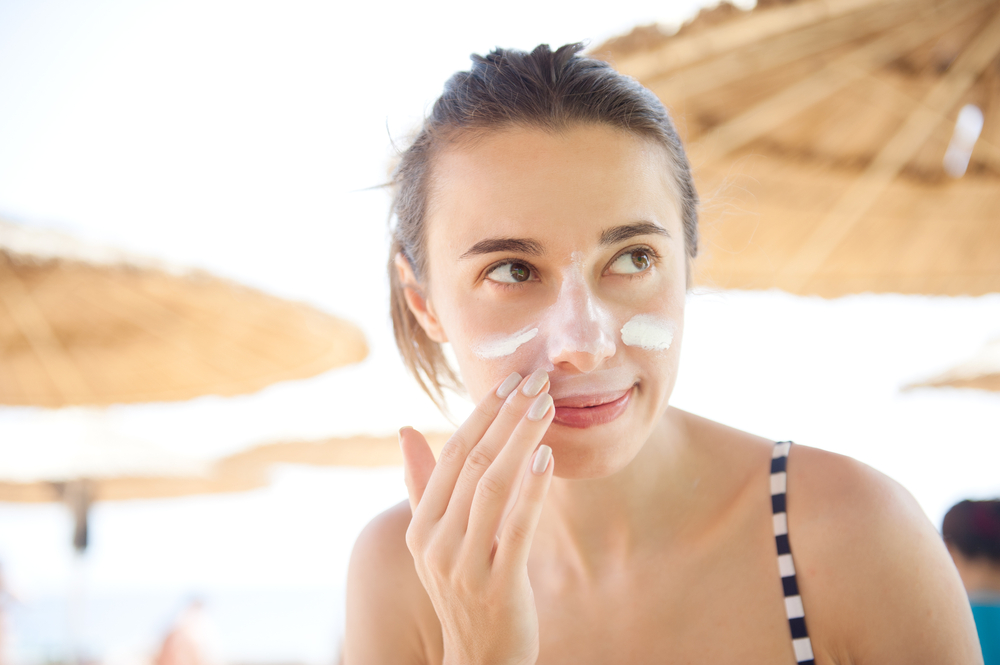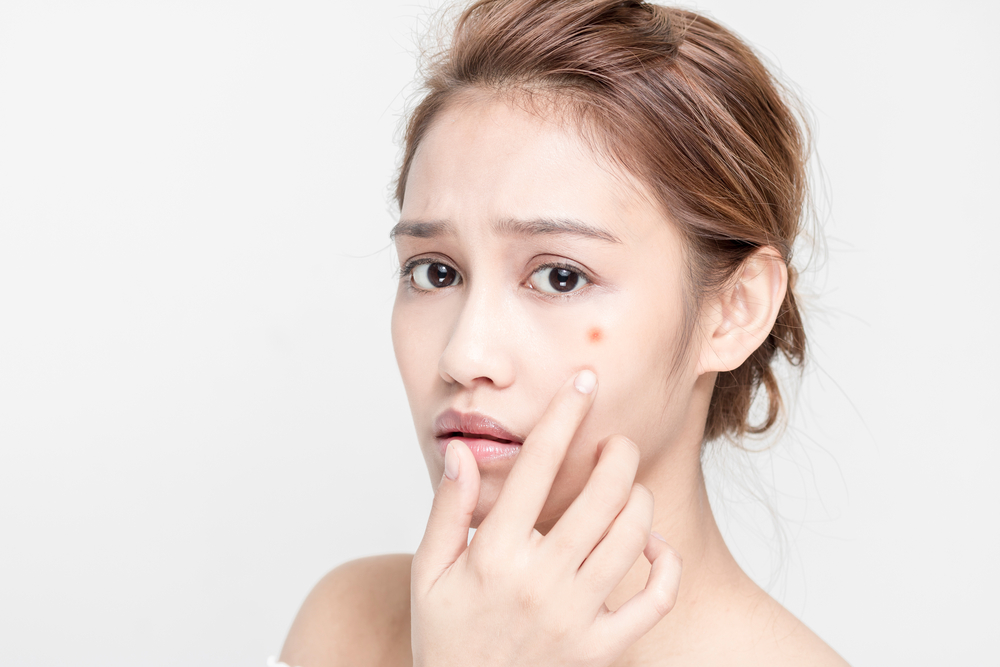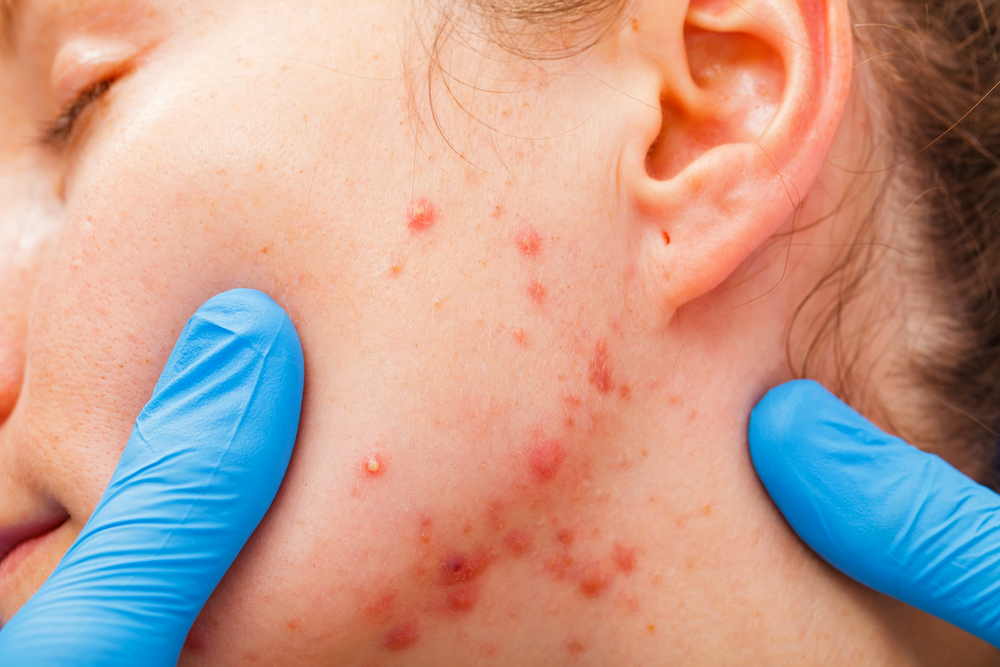- Sudden breakouts can be due to dairy products or foods high on the glycemic index.
- Breakouts can also be caused by stress and hormonal fluctuations.
- Prevention is the best weapon to fight sudden onsets of acne.
Have you ever woken up on the day of an important event to find that your face has broken out in acne? Of course you have. It’s Murphy’s Law in action and unfortunately, all too many of us have experienced it.
Thankfully, there are steps you can take to combat and even prevent sudden breakouts.
To learn more, we spoke with Dr. Adam Friedman, Associate Professor of Dermatology at the George Washington School of Medicine and Health Sciences in Washington, DC. We also review five tips to meet the problem head on.
What’s behind these sudden breakouts?
Several factors can play a role in sudden breakouts but according to Friedman, it basically comes down to anything that causes inflammation.
One of the most common causes of inflammation is stress. “Sudden breakouts can occur in the setting of significant stress on the body,” says Friedman. “This can be in the form of emotional stress or physical stress — poor sleep, illness, and poor diet, namely.”
Often stress mistakenly activates the immune system, leading to inflammation in the form of acne.
Unfortunately for women, gender can also play a role. “Adult women are more prone to acne due to hormonal influences — also known as androgens — on the sebaceous gland and hair follicle unit,” notes Friedman.
Dietary culprits
Another common cause of inflammation and acne is consumption of certain foods. Contrary to popular beliefs, however, it’s not because the food is greasy, sugary or fatty, according to Friedman.
“There have been several studies attempting to evaluate the role of diet and acne and what is uniformly agreed upon is that foods high on the glycemic index — anything from a white potato to a candy bar — can induce acne as these foods are pro-inflammatory,” he explains.
“Dairy products have also been linked to some degree due to the hormones and growth factors present.” For example, the hormones in milk can react with the testosterone already present in your body, increasing the production of sebum, which is the oily stuff that clogs pores.
Not all dairy products have this effect, so make sure to talk to your dermatologist before making drastic changes to your dairy intake.
Five tips to tackle sudden breakouts
A lot of us feel defeated the moment we experience a sudden breakout. Don’t throw in the towel though — there are actions you can take to diminish inflammation. Of course, the best plan of action is always prevention.
We review five top tips to treat acne and improve your chances of blocking breakouts in the first place.
1. Leave it alone!
“The best advice is do less,” stresses Friedman. It can be tempting to pop, poke, cut or lance your acne but according to Friedman, this will only make it worse and increase the likelihood of discoloration and scarring after the lesion resolves. “There is no safe way to pop a pimple,” he says, “Just don’t.”
2. Consider steroid injections
The only real way to immediately address a sudden breakout is to visit a dermatologist. According to Friedman, this is because the only quick solution to reduce the redness and swelling associated with sudden breakouts is the administration of steroid (cortisone) injections.
Cortisone is a naturally occurring chemical released by the adrenal glands in reaction to stress. One of its primary functions is to battle inflammation. Thus, doctors sometimes inject it straight into areas suffering from inflammation, including acne.
Cortisone injections are not recommended for ongoing use but can be quite effective at quickly and dramatically reducing inflammation and promoting healing. They’re particularly effective at combating cystic acne lesions and reducing the chance of scarring. These lesions are difficult to fight with topical treatment that doesn’t go deep enough into the skin to make a difference.
It should be noted that cortisone shots can be relatively painful. Your dermatologist can apply a topical anesthetic to numb the area, if necessary. The shots also have a couple of potential side effects, including atrophy of fatty tissue near the injection site, which can temporarily cause the area to appear sunken.
Cortisone shots can also thin the skin and continual shots can interfere with the skin’s ability to heal itself. A rare side effect of cortisone shots is the formation of a white spot at the site of injection.
3. Ask about medications
The last three tips fall under the umbrella of prevention. It may seem obvious but the best way to fight breakouts is to prevent them.
One good way to achieve this is with medication, according to Friedman. Topical retinoids — but not retinol, which is weaker — are the first line of prevention due to their multitude of biological activities, he says.
There are several types (most of which require a prescription), including tretinoin, tazarotene and adapalene (0.1% is now over the counter while 0.3% still requires a prescription).
There are also retinoid pills that can be prescribed to reduce bacteria and oil production. Skin oil actually protects the skin, but excess oil can lead to overly oily skin, active acne and inflammation. To prevent future breakouts, Friedman says that it is very important to keep using these medications — even once the acne clears.
When applied to the skin, retinoids unclog pores. In addition, they minimize acne breakouts by making it difficult for dead cells to clog pores in the first place. Finally, because they reduce breakouts, retinoids also limit scarring. It should be noted that use of retinoids can lead to redness and peeling.
4. Consistent care is key
Friedman notes that maintaining a consistent skin care regimen is key to preventing sudden breakouts. He notes that this applies to oral therapies, which can take time to work.
“Consistent intake is of the utmost importance to ensure treatment success,” he stresses. “I can’t tell you how many times new patients have told me they took previous oral medications for 1 week and then stopped because there was no improvement.”
Thus, it’s important to have realistic expectations and adhere to your regimen to see results.
5. Avoid foods that are high on the glycemic index
The glycemic index (GI) is a system for ranking foods based on their effect on blood sugar levels. According to Friedman, foods that are high on the glycemic index have been shown to cause inflammation and acne due to a spike in blood sugar levels.
Foods with a low GI value are preferable for people suffering from sudden breakouts. Low GI foods are digested and absorbed slowly and therefore, do not affect blood sugar levels as quickly or drastically.
Ask your general practitioner or dermatologist for a full list of foods with a high GI that you should avoid if you are trying to prevent or combat adult acne.
Here is an abbreviated list of examples of some of the common culprits listed by category:
Breads
- White bread
- Turkish and Lebanese bread
- Bagels
- Naan
- Baguettes
Cakes and sweets
- Scones
- Doughnuts
- Cupcakes
- Cookies
- Waffles
- Jelly beans
- Licorice
Sugary cereals
- Instant oats
- Rice Krispies
- Corn Flakes
- Cocoa Krispies
- Froot Loops
Carb rich
- Instant mashed potatoes
- Corn pasta
- Instant noodles
- Jasmine, arborio and white rice
- Rice cakes and crackers
- Pretzels
- Corn chips
Others
- Rice milk
- Oat milk
- Watermelon
A pound of prevention with an ounce of cure
As an adult, sudden breakouts can be frustrating. After all, wasn’t this supposed to end in high school? Follow the steps outlined here and you should be able to resolve and block breakouts from happening.
In addition, your dermatologist should be able to recommend skin care products tailored to your needs and provide you with a comprehensive plan to fight acne that takes into account your skin type and other factors like hormonal fluctuations.
» Speak with a dermatologist if you’re prone to sudden bouts of acne. Meet our medical review team.









